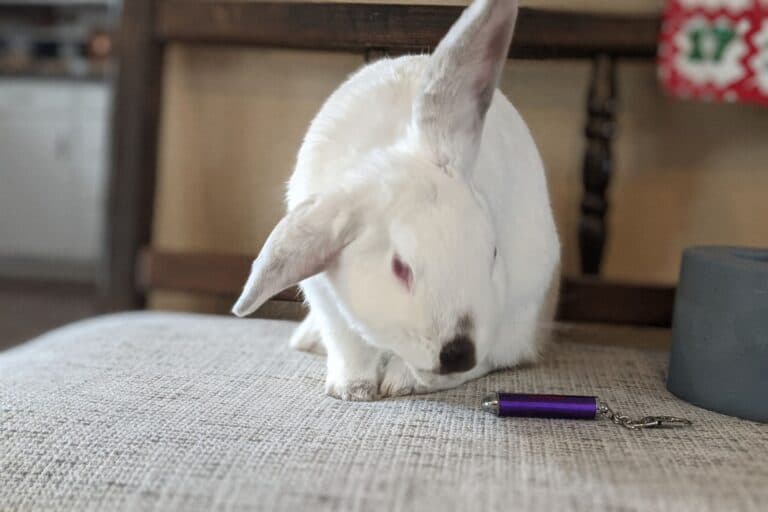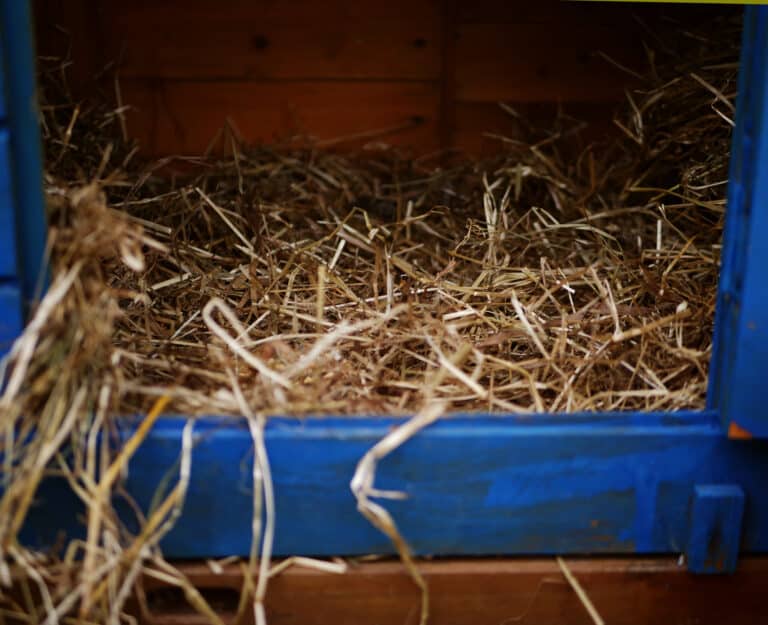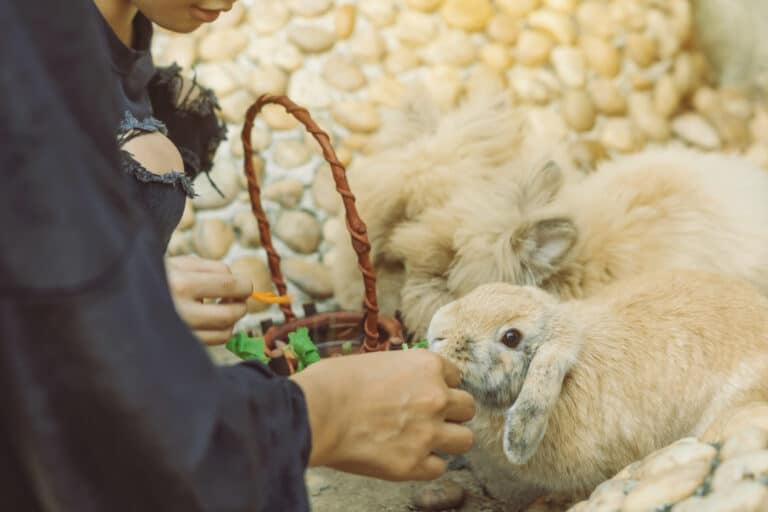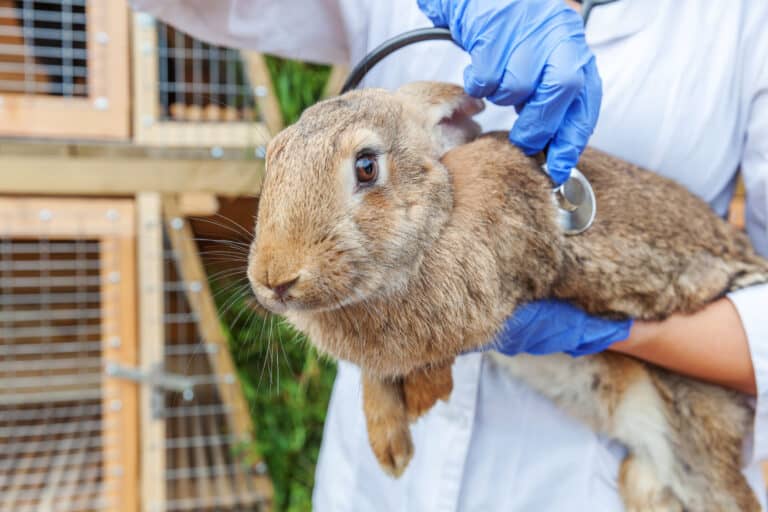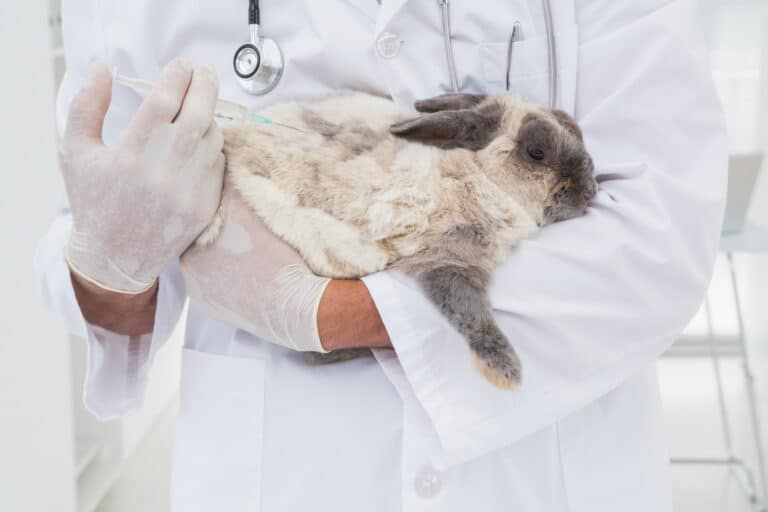Head Tilt in Rabbits: 6 Causes and How to Prevent It
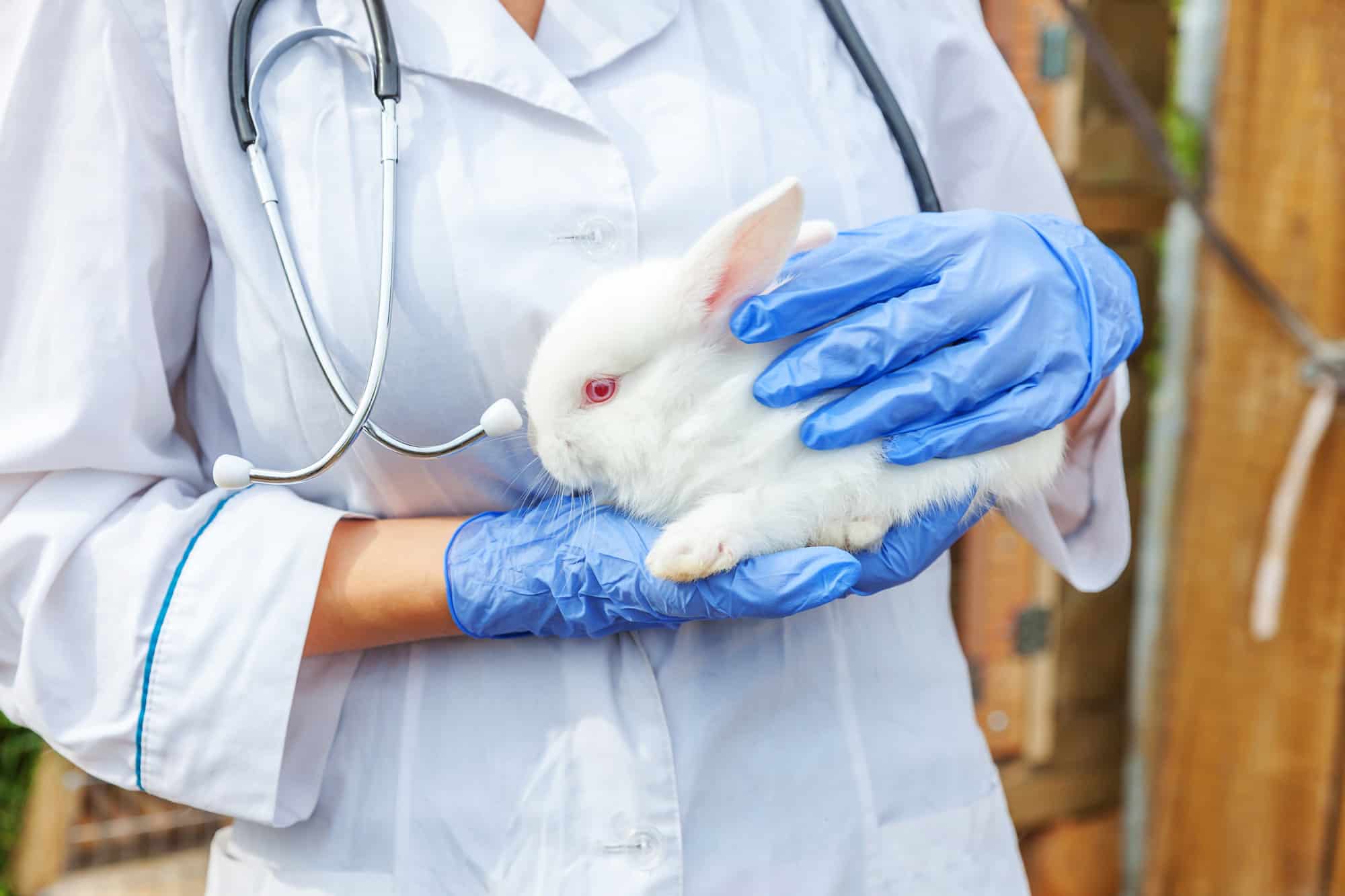
At first glance, head tilt in rabbits may seem like a simple quirk, especially for new bun parents. However, experts point out that it may be a symptom of some serious health conditions. Several reasons exist as to why your pet is suddenly cocking his head to one side, but when you see your rabbit tilt his head, you need to consult your vet.
What Is Head Tilt in Rabbits?
This condition, which has the medical term torticollis and is sometimes called “wryneck,” causes a rabbit’s neck to twist, making the head tilt to one side. Sometimes, nystagmus (a rapid and uncontrollable movement of the eyeballs) accompanies the head tilting.
Wryneck may develop slowly and so subtly that you hardly notice it. In other cases, it occurs suddenly and in a dramatic manner. But no matter how it presents itself, the result is the same. Your bun will be walking around with his head cocked to one side. As a result, he may lack coordination and stumble. There may even be instances when he becomes so disoriented that he can’t remain upright. He may simply lie on his side or roll around trying to regain his balance.
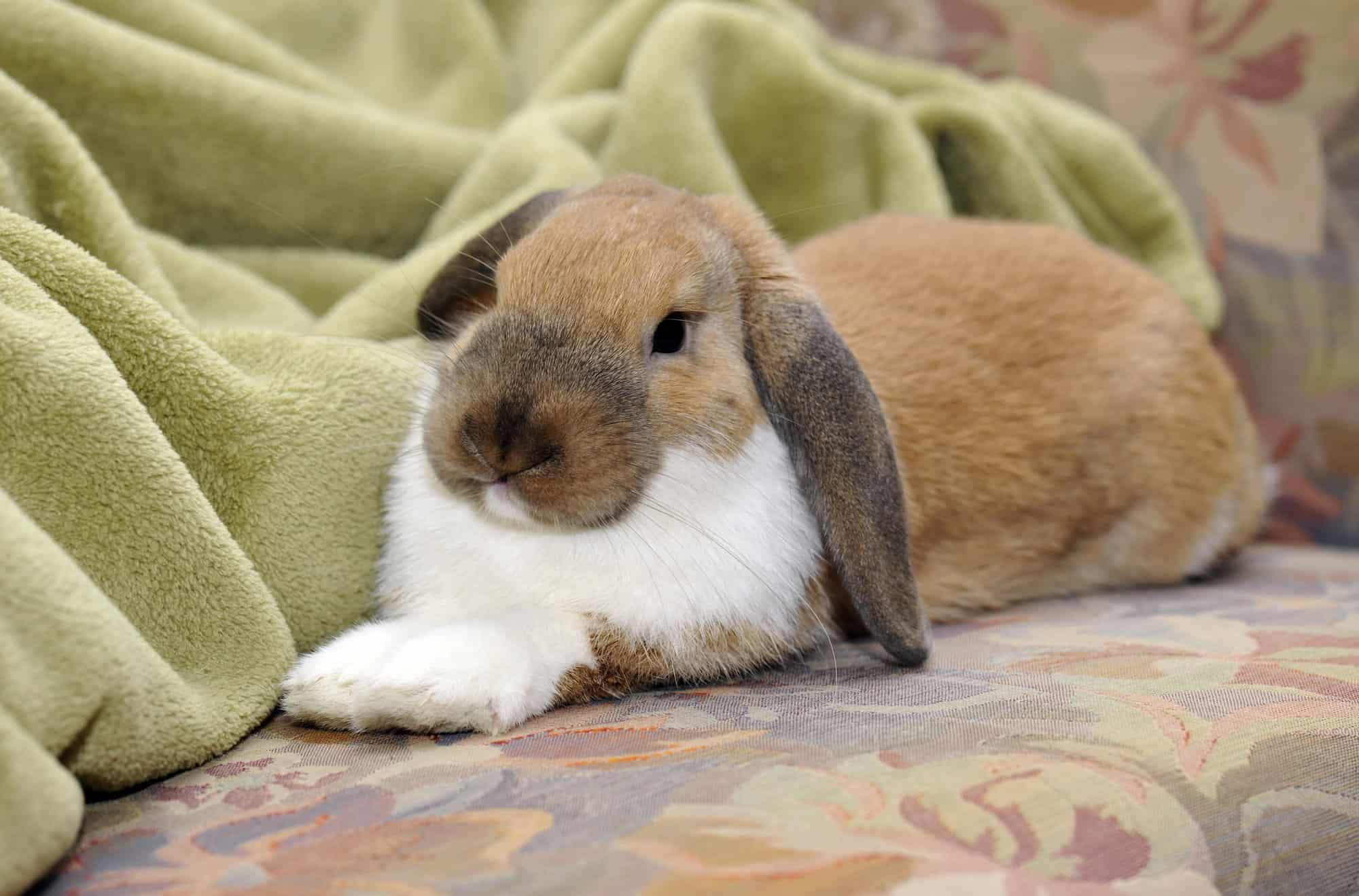
Rabbit Head Tilt Symptoms
Head tilting usually doesn’t occur by itself. Depending on the severity of the condition and the cause, other symptoms may also be present. They include the following:
- Lack of coordination or falling over
- Head shaking
- Ear scratching
- Appetite loss
- Tremors
- Disorientation
- Walking in circles
- Drooping on one side of the face
- Rolling over uncontrollably
Causes of Rabbit Head Tilt
Head tilt is not considered a disease by itself. Instead, it is a symptom of ailments that affect a rabbit’s balance system. The balance system includes the central nervous system (CNS), vestibular apparatus in the inner ear, the visual system, and even the pads of his feet which tells him that he’s standing on the ground.
While head tilt can arise from several health issues, the six most common causes are the following:
1. E. Cuniculi
Encephalitozoon cuniculi or E. Cuniculi is a microscopic parasite that resides in a rabbit’s body and can cause several diseases. These include kidney problems, cataracts, and conditions that affect a rabbit’s CNS.
Rabbits pick up the organism by inhaling or ingesting the spore. The parasite then travels to the various parts of the body via the bloodstream. If it gets to the brain, it may cause damage to the central nervous system, and one of the symptoms of such a condition is head tilting.
2. Ear Infections
Infections in the middle and inner ear are one of the top causes of wryneck in rabbits. Yeast, bacteria, or a mix of both are the usual sources of such issues. Middle and inner ear infections typically lead to tissue inflammation that can interfere with the vestibular system, which forms part of a rabbit’s sensory system.
Problems in the sensory system can cause vertigo, loss of balance, and tilting of the head to one side.
3. Abscess
Localized infections sometimes lead to the formation of abscesses. Depending on where the abscess develops, it may affect a rabbit’s sense of balance and coordination, making him tilt his head.
For example, abscesses behind the eye or under the skin near the ear can put pressure on your bun’s ear canal. This throws off his equilibrium. The result? His movements may become uncoordinated, and his head can tilt.
4. Ear Mites
Rabbits are prone to having ear mites. These tiny pests usually thrive in your bun’s ears and feed on the wax there. Such action creates a loud sound in the ear canal which can be painful and irritating to your pet. In an attempt to get rid of the pain and annoying sound, rabbits scratch their ears, tilt, shake or rub their heads on the ground.
5. Head Trauma
Did your bun fall and hit his head? Or was he accidentally struck by a hard object around the neck region? Then, this may be the reason behind the head tilt. That’s because blunt trauma to the neck or head can cause neurologic problems, including wryneck.
6. Toxins
Plenty of toxins can impact a rabbit’s health and cause head tilt. One of the most common toxins is lead. Rabbits who ingest this chemical may exhibit signs of illness such as lack of appetite, lethargy, character changes, and head tilting.
Old furniture and toys sometimes contain lead, which your rabbit swallow when he chews on them. Other sources of toxins are certain plants and some common household cleaners.
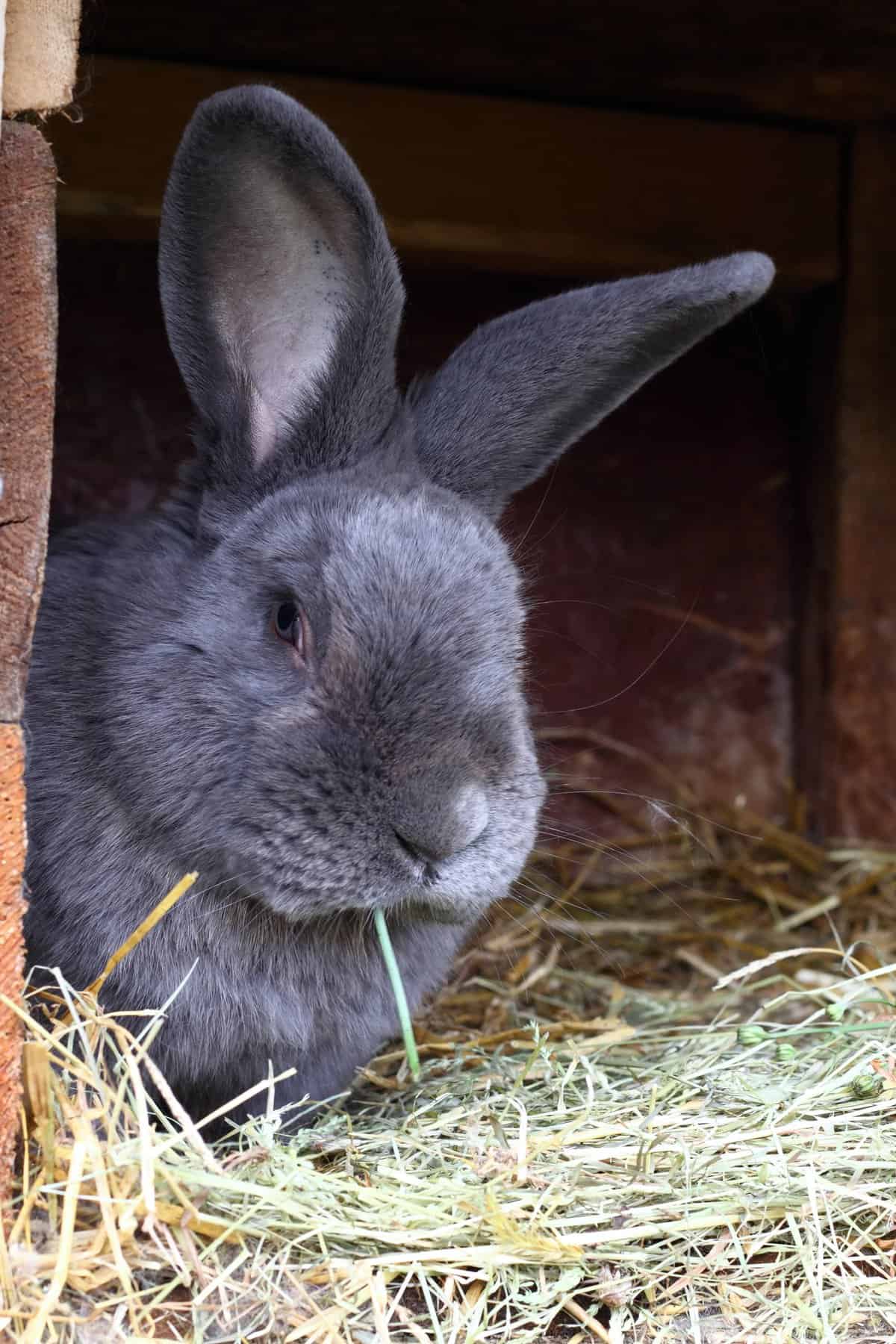
Treatment of Head Tilt in Rabbits
Seeing your bun struggling with head tilt can be pretty scary. Fortunately, the condition is treatable, and the treatment options will depend on the condition’s cause.
Your vet may recommend the following based on your pet’s condition:
- A course of antibiotics for infections (such as infections of the middle and inner ear)
- Medication for pain and inflammation
- Nutritional support
- Fluid therapy to boost hydration
- Physical therapy
Prevention of Head Tilt
Due to the many causes of head tilt, you may not be able to prevent it from befalling your rabbit entirely. Still, there are effective ways to reduce the risks.
- Keep your bun’s cage clean: The build-up of urine, droppings, and food materials becomes a breeding ground for bacteria, which can make rabbits sick. A dirty living environment also attracts pests that can transmit various diseases among rabbits.
- Monitor your rabbit: By keeping a close eye on your pet, you’ll be able to spot signs of illness and be able to address the issue immediately.
- Avoid overcrowding: If you have several rabbits, keep only the recommended number in one cage or hutch. Also, size your pet’s housing accordingly. Overcrowding makes it more challenging to keep the living space clean. It also increases the chances of infection spreading among your pets.
- Be careful when bringing a new bun home: When you take home a new pet, it’s worth seeking your vet’s advice about treating your fur baby with anti-parasitic medications before he meets your other buns. This helps ensure that your new rabbit won’t spread the E. Cuniculi parasite to his hutch mates.
Treating rabbit head tilt can be challenging. Still, it’s possible. The recovery may be slow, and, in some cases, some balance issues remain. But giving your bun extra care and constant communication with your vet are the keys to bringing back your fur baby to the pink of health.
Head Tilt FAQs
The most causes of head tilt or wry neck are ear mites, infections, head trauma, ear infections and toxins.
It’s best to take your pet to the vet to see what the underlying cause is. If there is an infection, your rabbit may need antibiotics.
Rabbits can live their whole lives with head tilt. With treatment, it may improve so the tilt is not as drastic, but they can also have it as a lifelong condition.
While the physical head tilt is not contagious, the underlying infection or illness may be. It’s best to consult a vet to determine the cause.
More on Rabbit Care
- How Long Do Flemish Rabbits Live: Giant Breed Facts
- Complete Guide to the Best Hay For Rabbits: Reviews & More
- Are Rabbits Rodents? Find Out More About These Small Mammals
- Is Oat Hay Good for Rabbits? Complete Guide to the Best Hay
- Why Do Rabbits Lick You? 11 Reasons for This Common Behavior
We hope you enjoyed this post! If you did, will you give it a share or two 🙂 Thank you! ~from Every Bunny Welcome


